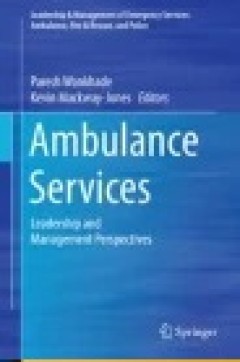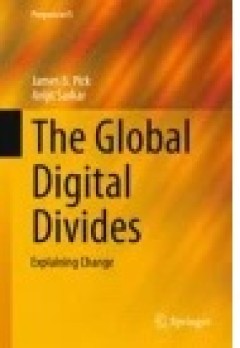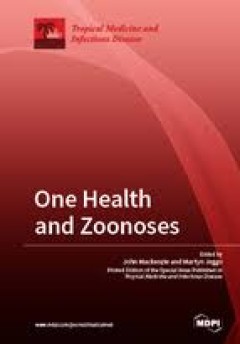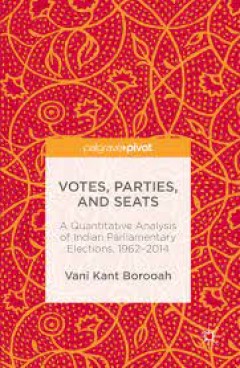Filter by

Ambulance Services: Leadership and Management Perspectives
This volume provides fresh insights and management understanding of the changing role of the ambulance services against the backdrop of massive cuts in health budgets around the world and the changing context of pre-hospital care within the wider healthcare networks. The challenges of funding, training and cultural transformation are now felt globally. The need to learn and adapt from suitable …
- Edition
- Ed. 1
- ISBN/ISSN
- 978-3-319-18642-9
- Collation
- XIV, 192
- Series Title
- -
- Call Number
- 614 AMB a

Female-to-Male (FtM) Transgender People’s Experiences in Australia A Natio…
This Briefs is the first national study on female-to-male (FtM) transgender people’s experiences in Australia. It describes an extensive study that fills the current gap in Australian research on the specific experiences and beliefs about transition for contemporary Australian FtM transgender people. Following an overview of current literature on the various aspects of and approaches to trans…
- Edition
- -
- ISBN/ISSN
- 978-3-319-13829-9
- Collation
- XIX, 154
- Series Title
- -
- Call Number
- -

The Linear Model and Hypothesis
This book provides a concise and integrated overview of hypothesis testing in four important subject areas, namely linear and nonlinear models, multivariate analysis, and large sample theory. The approach used is a geometrical one based on the concept of projections and their associated idempotent matrices, thus largely avoiding the need to involvematrix ranks. It is shown that all the hypothes…
- Edition
- -
- ISBN/ISSN
- 978-3-319-21930-1
- Collation
- IX, 205
- Series Title
- Springer Series in Statistics
- Call Number
- -

The Global Digital Divides
This book analyzes extensive data on the world’s rapidly changing and growing access to, use and geographies of information and communications technologies. It studies not only the spatial differences in technology usage worldwide, but also examines digital differences in the major world nations of China, India, the United States and Japan at the state and provincial levels. At the global lev…
- Edition
- -
- ISBN/ISSN
- 978-3-662-46602-5
- Collation
- XXIX, 386
- Series Title
- Progress in IS
- Call Number
- -

Toxins in Drug Discovery and Pharmacology
Venoms from marine and terrestrial animals (cone snails, scorpions, spiders, snakes, centipedes, cnidarian, etc.) can be seen as untapped cocktails of biologically active compounds that are being increasingly recognized as a new emerging source of peptide-based therapeutics. Venomous animals are considered to be specialized predators that have evolved the most sophisticated peptide chemistry an…
- Edition
- -
- ISBN/ISSN
- 978-3-03842-862-6
- Collation
- -
- Series Title
- -
- Call Number
- 615 TOX

One Health and Zoonoses
The One Health concept recognizes that the health of humans, animals, and their ecosystems are interconnected, and that a coordinated, collaborative, multidisciplinary, and cross-sectoral approach is necessary to fully understand and respond to potential or existing risks that originate at the animal–human–ecosystems interfaces. Thus, the One Health concept represents a holistic vision for …
- Edition
- -
- ISBN/ISSN
- 978-3-03921-296-5
- Collation
- -
- Series Title
- -
- Call Number
- 610 ONE

Novel Pharmacological Inhibitors for Bacterial Protein Toxins
Many medically relevant bacteria cause severe human and animal diseases because they produce and release protein toxins that target mammalian cells. Because the toxin-induced cell damage is the reason for the clinical symptoms, the targeted pharmacological inhibition of the cytotoxic mode of action of bacterial toxins should prevent or cure the respective toxin-associated disease. Toxin inhibit…
- Edition
- -
- ISBN/ISSN
- 978-3-03842-431-4
- Collation
- -
- Series Title
- -
- Call Number
- 615 NOV

Microfinance, EU Structural Funds and Capacity Building for Managing Authorities
In recent years, the European Commission has attached increasing importance to the use of financial engineering instruments rather than traditional grant-based financing for the microcredit sector, considering these to be the most efficient option available. This book presents a study of capacity building and structural funds in public managing authorities for the microcredit sector. It present…
- Edition
- 1
- ISBN/ISSN
- 978-1-137-51512-4
- Collation
- XXX, 286
- Series Title
- Palgrave Studies in Impact Finance
- Call Number
- -

Meta-Analytic Structural Equation Modelling
This book explains how to employ MASEM, the combination of meta-analysis (MA) and structural equation modelling (SEM). It shows how by using MASEM, a single model can be tested to explain the relationships between a set of variables in several studies. This book gives an introduction to MASEM, with a focus on the state of the art approach: the two stage approach of Cheung and Cheung & Chan. B…
- Edition
- 1
- ISBN/ISSN
- 978-3-319-27172-9
- Collation
- VIII, 88
- Series Title
- SpringerBriefs in Research Synthesis and Meta-Analysis
- Call Number
- -

Votes, Parties, and Seats A Quantitative Analysis of Indian Parliamentary El…
This starkly lucid and timely book absorbs the nuances of the largest festival – the elections – of the world's largest democracy. Hailing from a political family, the author conveys his passion and knowledge on the intricacies, as well as the heat and dust of his national fête. All data and events have been methodically examined in this absorbing analytical work which is an indispensable …
- Edition
- -
- ISBN/ISSN
- 978-3-319-30487-8
- Collation
- XVII, 160
- Series Title
- -
- Call Number
- -
 Computer Science, Information & General Works
Computer Science, Information & General Works  Philosophy & Psychology
Philosophy & Psychology  Religion
Religion  Social Sciences
Social Sciences  Language
Language  Pure Science
Pure Science  Applied Sciences
Applied Sciences  Art & Recreation
Art & Recreation  Literature
Literature  History & Geography
History & Geography